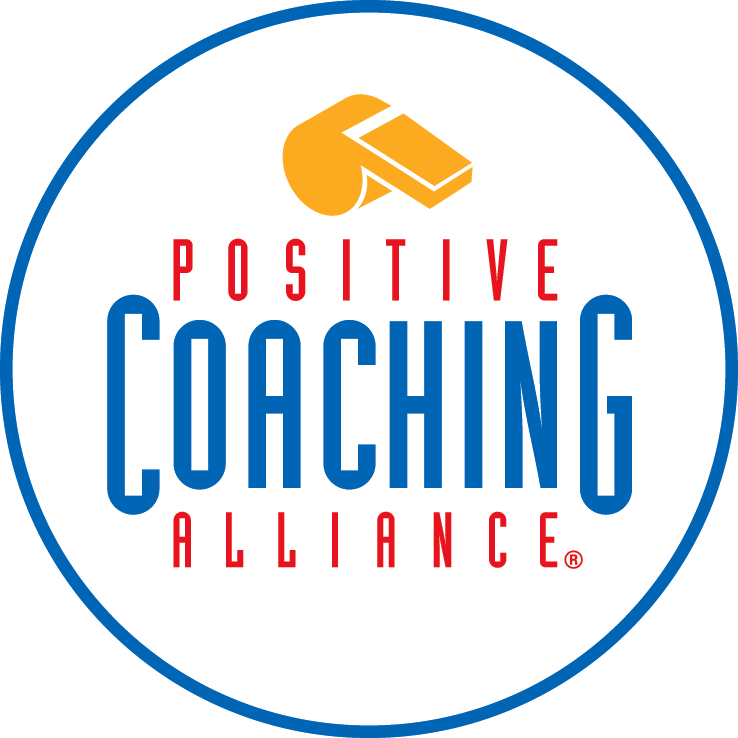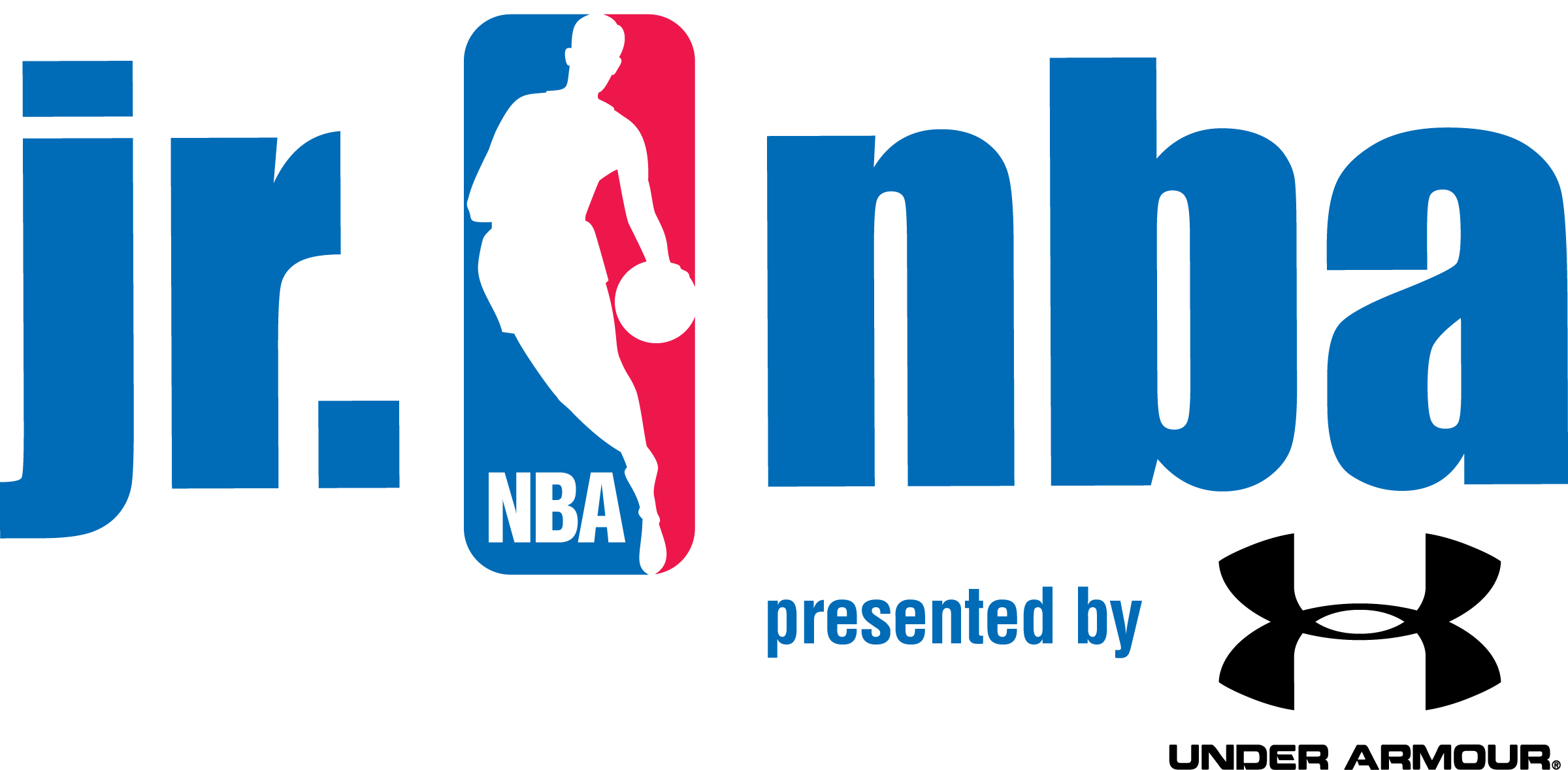
Basketball on the Edge – Don’t Get Distracted!
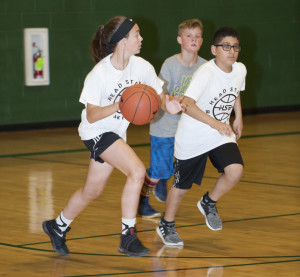
Sitting down with Alan Stein, Jr. last weekend to record a podcast episode was a rare treat. If you haven’t had the chance to listen to the episode I urge you to give it a listen. Alan made sure the interview was packed full of insightful, actionable advice. After we had finished recording he asked me how I had done my research on him to prepare for the interview. I explained that I had mainly listened to as many podcast episodes as I could on which he had been a guest. As the conversation continued he asked me what I liked to listen to and I shared a few of my favorites: How I Built This and Masters of Scale. Then I asked him the same question. Alan shared that his favorite right now is the Focus 3 Podcast. In fact, he said he stopped listening to it in his car because he found that there is so much great content for players, students, coaches, parents, and business leadersthat he needed to listen to it while he was home so he could take notes. That is a ringing endorsement!
I’ve spent the week listening to the first several episodes (in the car mostly, sorry Alan!), but I have found the Focus 3 Podcast (hosted by Father & Son – Tim and Brian Kight) to have tremendous value that is applicable to all of us. With that as the backstory, I took today’s topic, enduring discipline, from the podcast in which the Kights describe it as a way to overcome distraction.
Let’s take a look at what enduring discipline means for a basketball player. Anyone can be disciplined once or twice. Some players can be disciplined for a month. Others can be disciplined during a sixth month season. Fewer still can be disciplined for an entire year. Only the best can be disciplined for the entirety of their career, whether that career ends in high school (for many), in college (for some) or at the professional level (for very, very few). That doesn’t mean that players with enduring discipline don’t get distracted or off track, or miss a workout. They do…but when they mess up, they get back in the gym or back in the weight room and they get back to work. Players with enduring discipline understand that success comes from being disciplined about what they do over long periods of time. What many kids (and adults too) fail to see is that the consequences of their disciplined approach to training may not show up right away. In fact, those consequences may not show up until years down the road. There are very few players that take the long view of their career, especially when they are young. Players want it to happen now…today. The reality is that growth as a player isn’t often measured in days. Working on the basics day in day out for years is what it takes to become a great player and that requires enduring discipline not a week’s worth.
We often overestimate what we can accomplish in a day or a week and underestimate what we can accomplish in a year or five years. Too many players get distracted and give up without putting in the time required to get really good. Enduring discipline is not perfection, it is simply a pattern of discipline that players return to consistently over time. It allows them to slip up occasionally and yet still return to the practice habits, training, and mindset that leads to great outcomes.
Enduring discipline is a long term habit that doesn’t allow distractions or obstacles to get in the way of the outcome that the player wants. There may be the temptation to slack off, the call from friends to go hang out, the coach that doesn’t see your value, the teammate that says you won’t make it, but through all of that enduring discipline sets the course for a sustainable pattern despite the occasional setback that befalls everyone. If we can strengthen our enduring discipline by building great habits, then we’ll overcome the roadblocks that we face and stay on the road to long—term success both on the court and in life.
Click here to register for one of our upcoming programs!
Sign up now to get a “Head Start” on your competition with our free basketball tip of the day delivered straight to your inbox. Click below, enter your email and we’ll also send you our E-Book, “Mental Toughness, Improve Your Brain – Improve Your Game”.
Basketball on the Edge – “Make Failure Your Fuel”: How to Help Your Athletes Learn from Adversity by John O’Sullivan
Several weeks ago I wrote about the need to teach kids to deal with failure in a positive way. This article from John O’Sullivan builds on the lessons I shared that article. We all face failure at some point, how we handle it determines the trajectory of future experiences in on and off the court.
Click here to read the article by John O’Sullivan
Click here to register for one of our upcoming programs!
Sign up now to get a “Head Start” on your competition with our free basketball tip of the day delivered straight to your inbox. Click below, enter your email and we’ll also send you our E-Book, “Mental Toughness, Improve Your Brain – Improve Your Game”.
Basketball on the Edge – My Only Golden Rule of Success by Trevor Huffman

I love this article from fellow Kent State Basketball Alum Trevor Huffman. This is the truth that many of just don’t understand. Read it, think about it, and then live it! Thanks Trevor!
Click here to read the article by Trevor Huffman
Click here to register for one of our upcoming programs!
Sign up now to get a “Head Start” on your competition with our free basketball tip of the day delivered straight to your inbox. Click below, enter your email and we’ll also send you our E-Book, “Mental Toughness, Improve Your Brain – Improve Your Game”.
Basketball on the Edge – We Need To Teach Kids How To Deal With Failure. Here’s How.
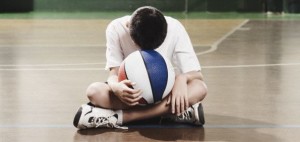
Failure is inevitable. Even the greatest athletes have failed over and over again. They don’t win every game. They don’t bring home a championship every year. Michael Jordan played 15 seasons in the NBA and “only” won six titles. LeBron James has lost 5 of his 8 NBA Finals appearances. The best ever don’t succeed every time. The sooner we help young athletes understand and deal with failure the more we are helping to set them up for true success, both on the court and in life. How can parents and coaches use failures to help their young players grow as both athletes and people? Share these 10 life lessons with kids whenever they have to deal with failure.
1. Failure is an opportunity to learn.
When we fail, we have to look for the reasons why. As we figure out those reasons we can incorporate what we’ve learned into our next opportunity. Our learning could be physical (I need to be a better shooter) or mental (I need to be more focused in critical moments. We need to define losing as a learning opportunity rather than a fixed reflection of our abilities.
2. Failure encourages thinking.
What did I do this time that led to failure? What can we do differently next time? Failure leads to this type of self-reflection that allows us to grow from failures.
3. Failure requires problem solving.
Often when we win, mistakes and deficiencies get glossed over. We think everything is great. We miss opportunities to grow because the scoreboard results tell us we did fine. When our children lose, we need to encourage them to problem solve solutions that will lead to better results the next time out. A key question kids should ask themselves is “What could I have done better?” Followed up by “How do I improve in that area I identified in the previous question?”
4. Failure helps us learn from our mistakes.
The most effective practice occurs when we are at the edge of our comfort zone. When we practice at that level, mistakes are going to occur as we push ourselves just beyond our current capabilities. Research has shown that is how we learn best. Failure is a chance for us to let kids know that mistakes are part of the learning process. The key here is for us to make sure kids know they MUST learn from their mistakes. Making the same mistake over and over again is not acceptable.
5. Failure leads to improved performance.
After the first four lessons on this list kids should begin to understand that failure leads to better performances in the future. This is true as long as we take the time to understand what happened, figure out an improvement plan, and then take action on our plan.
6. Failure requires courage.
Failure can be scary for kids (and adults!) If a player misses a game winning shot, it takes courage to want the ball in their hands the next time that situation arises. When we fail, we’re vulnerable. We may get criticized. It is not easy to get back up when we’re scared it may happen again. Sports are a great way to learn about the courage it takes in life to seize opportunities even if we’ve failed before or when failure is a possibility. Great players and great lives require courage.
7. Failure builds resilience.
We learn that failure isn’t final. We are going to have more opportunities to come back and fight another day. We have the ability to help our young athletes recover from setbacks and develop the grit that success requires. Remind kids, “If being great was easy, everyone would do it.”
8. Failure demands persistence.
Children need to know that overcoming failure doesn’t happen overnight. It is a process that requires hard work and determination. The ability to stick with that process over extended periods of time (even with mixed results) is what will ultimately lead to success.
9. Failure builds character.
Win with grace, lose with class. When kids fail we can teach them the proper way to react. We can explain and model how to respond to both failure and success. Always be gracious to your opponents even when they may behave in a way that makes it difficult. Overcoming obstacles in sports and in life requires strong character. Failure is an opportunity to strengthen our young athlete’s character. Don’t let these teachable moments slip past us.
10. Failure is an experience.
The more something happens, the better we become at handling it. Handling failure in sports today can give our young athletes the experience they need to deal with failures (both on and off the court) they’ll face in the future.
We need to shift our perspective when it comes to failure so that we can take advantage of the frequent opportunities sports provides to help our young athletes handle adversity. If we don’t, we’re missing out on the chance to develop skills that translate to any walk of life.
Click here to register for one of our upcoming programs!
Sign up now to get a “Head Start” on your competition with our free basketball tip of the day delivered straight to your inbox. Click below, enter your email and we’ll also send you our E-Book, “Mental Toughness, Improve Your Brain – Improve Your Game”.
Basketball on the Edge – Improve Team Chemistry In Just Minutes a Day!
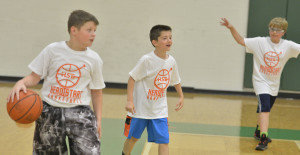
Team chemistry is an elusive property even among professional teams. It was once said that the 1970’s Boston Red Sox would have 25 men get into 25 cabs indicating the lack of connectedness those players had with one another. Shaq and Kobe famously couldn’t get along in the 2000’s leading to a potential dynasty breaking apart. On the other hand, some teams just seem to thrive and enjoy playing with each other, like the 2014 San Antonio Spurs that beat the Miami Heat or the 1977 Portland Trailblazers with Bill Walton. I’ve played on teams where I felt like an outsider and didn’t totally fit in. I’ve played on teams where guys didn’t really like each other. I’ve also had the pleasure of playing on teams where everyone was on the same page, teammates liked each other, and we all came together to achieve a common goal. I wish I had known more about developing and fostering team chemistry when I was a player. Here are some ways you can help your team develop a winning chemistry.
1. Encourage your teammates to focus on what they can control.
Attitude, energy, and effort are three things that every player can control. If you can remind your teammates how important attitude, energy, and effort are through both your words and your actions you can boost the environment your team competes in each and every day.
2. Use the words we, us, and our.
We played well tonight. Our team needs to play harder. All of us moved the ball in the second half.
I played well tonight. You need to play harder. He didn’t make the pass when he should have.
Your language makes a difference. Is your team culture one that values ME or WE? A simple change in the words you choose can help shape the way your team bonds together.
3. Build relationships with teammates on and off the court.
You certainly don’t have to be best friends with everyone on your team, but the best teams I’ve played on or coached did things together away from basketball. A team dinner, bowling night, just hanging out, the activity really doesn’t matter as long as you’re building relationships. Short conversations not related to basketball before or after practice go a long way in connecting teammates. Tim Duncan of the Spurs was reportedly a master of this skill, taking the time to seek out teammates and have a quick conversation with them whenever possible.
4. Recognize the strengths and successes of your teammates.
Telling a teammate that is going to be guarding the other team’s best player, “We know you’re going to do a great job defending player x tonight,” can really boost their confidence. As a coach, I like to have players point out things their teammates have done well when we are talking after the game. That doesn’t mean a player can’t take the initiative to point out something their teammate has done to help the team. Look for opportunities to acknowledge teammates both in private conversations and larger team settings.
5. Demonstrate trust in your teammates.
You must believe that each player on your team will execute their role to the best of their ability. Tell them that you know they can do it (whatever IT is). Recognize how important their contributions are to the team’s success. This is critical whether they are the star player or the last player on the bench. Everyone contributes to team chemistry.
6. Set the tone to create the team chemistry you want.
How do you come into the gym each day? Do you shuffle in looking like you’d rather be anywhere else or is your positive enthusiasm contagious? It takes one player to set the tone and then others must follow. Either take the leadership role and set the tone or follow the teammate that best exemplifies what you want for your team. You must be a role model. It’s not enough to talk a good game, you have to back up your good intentions with action.
7. Stress the value of the team’s shared purpose.
Why is your team working so hard? What are your goals? Is there more to success than just winning? Help everyone keep focused on the big picture when times get tough or you lose a big game. Remind your team that everyone is essential to each other’s success.
Team chemistry can be difficult to attain and it is definitely hard to measure. One thing I do know is that playing on a team with good chemistry is a lot more fun than playing on a team with lousy chemistry. The more intentional you can be as a player about the type of environment you want to create, the more likely you are to find the chemistry you’re looking for. Try out these tips with your team and see if you can’t mix up some improved chemistry!

